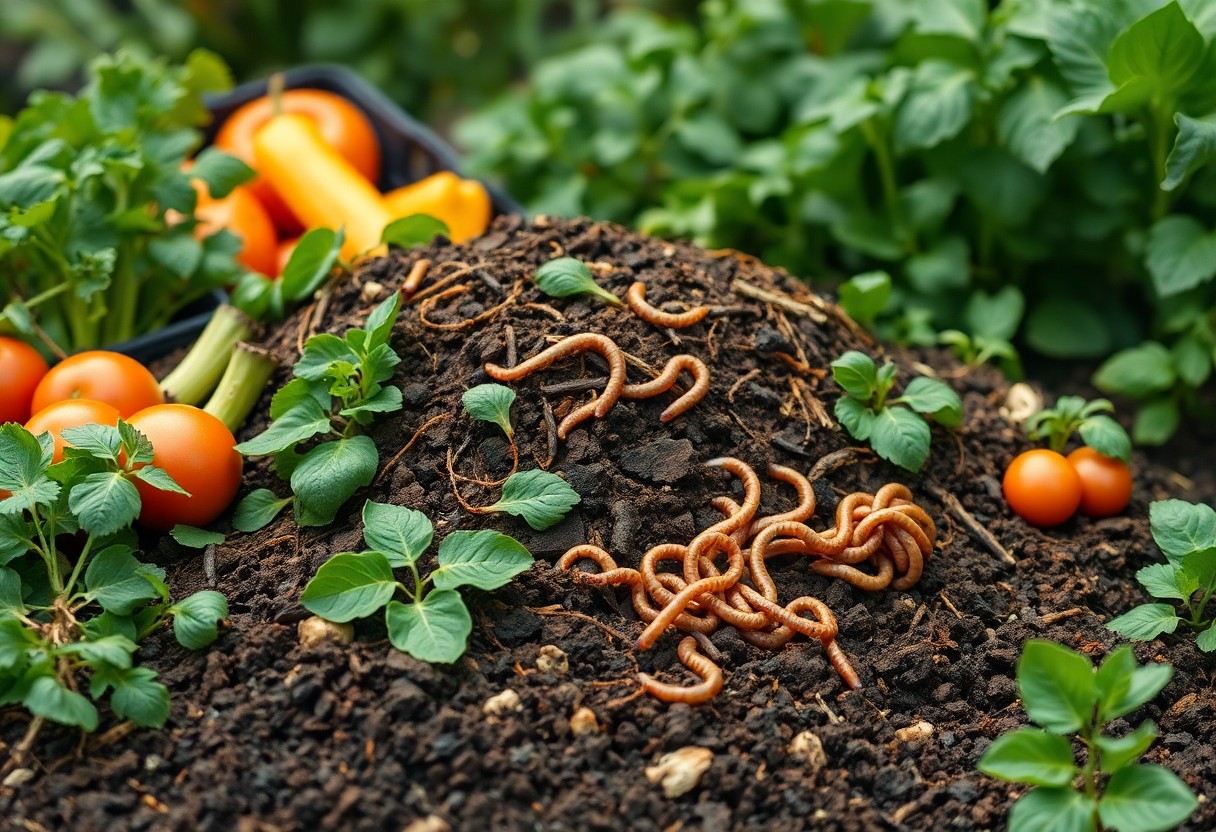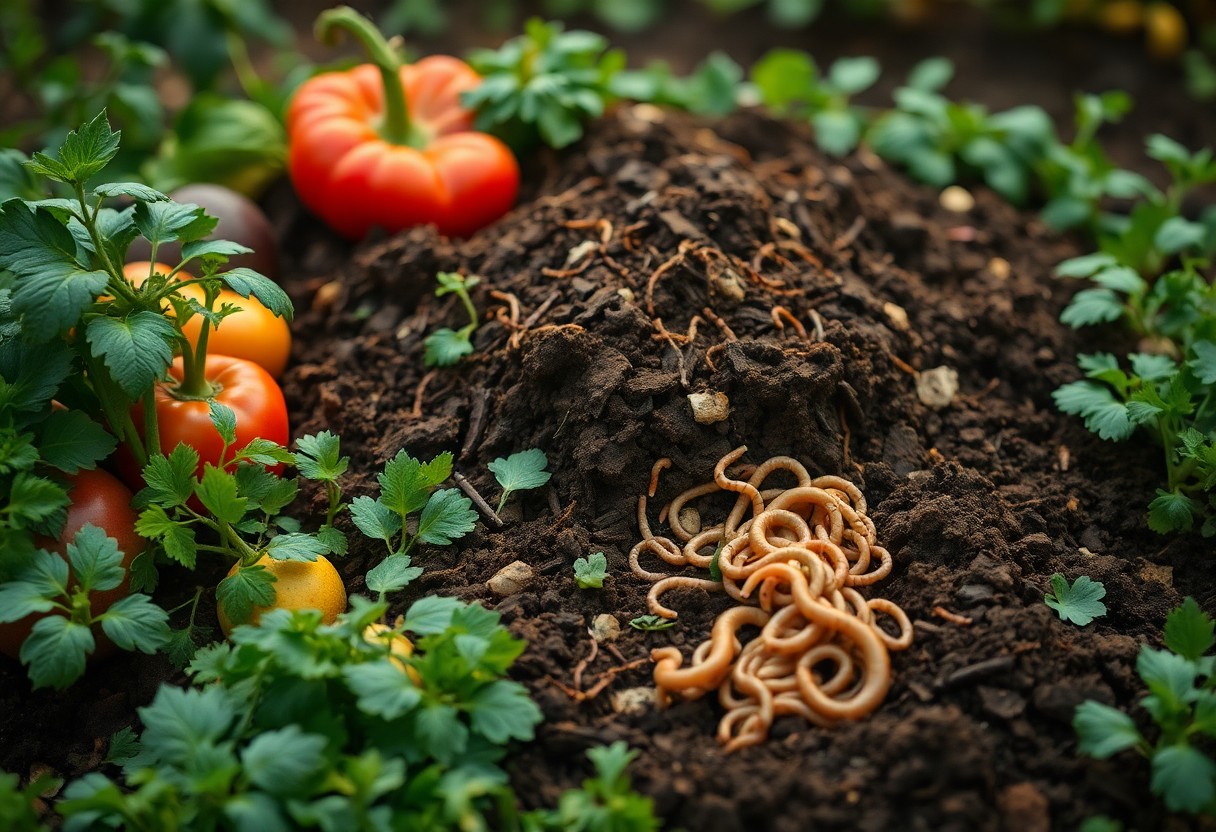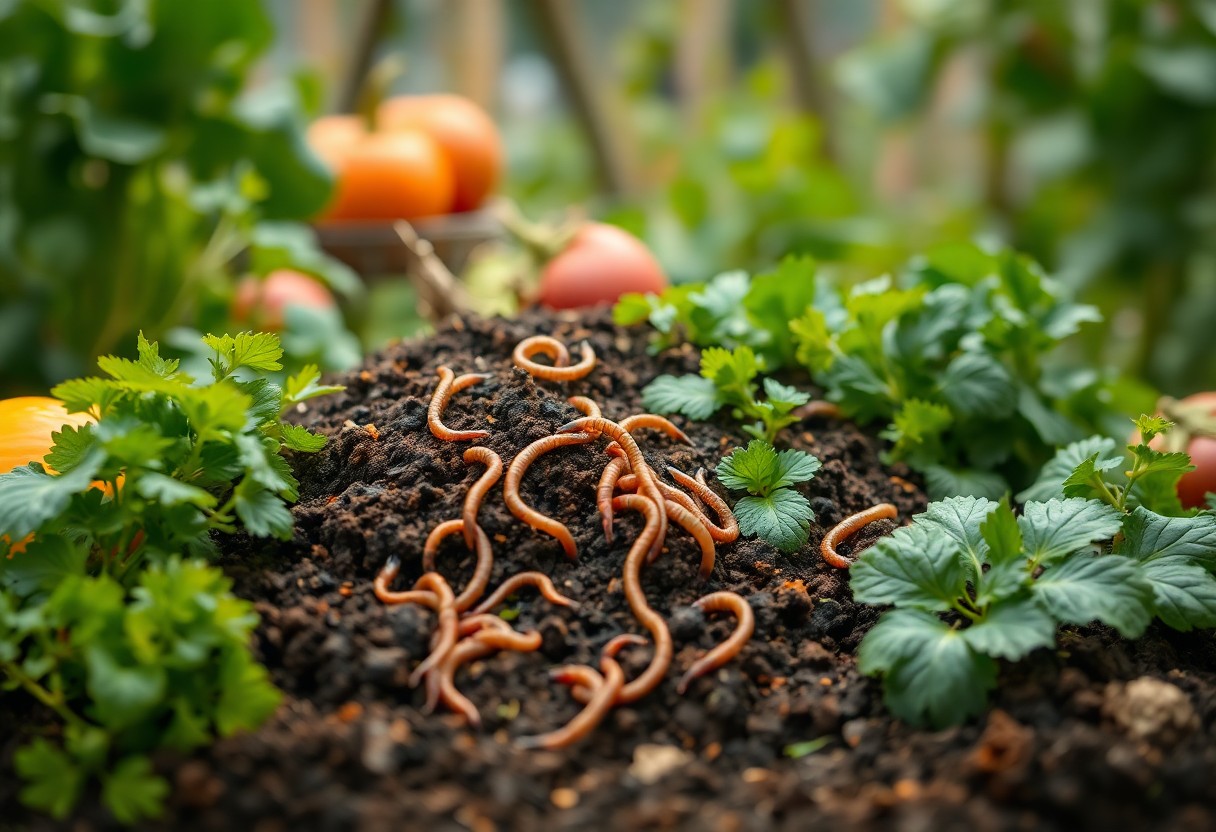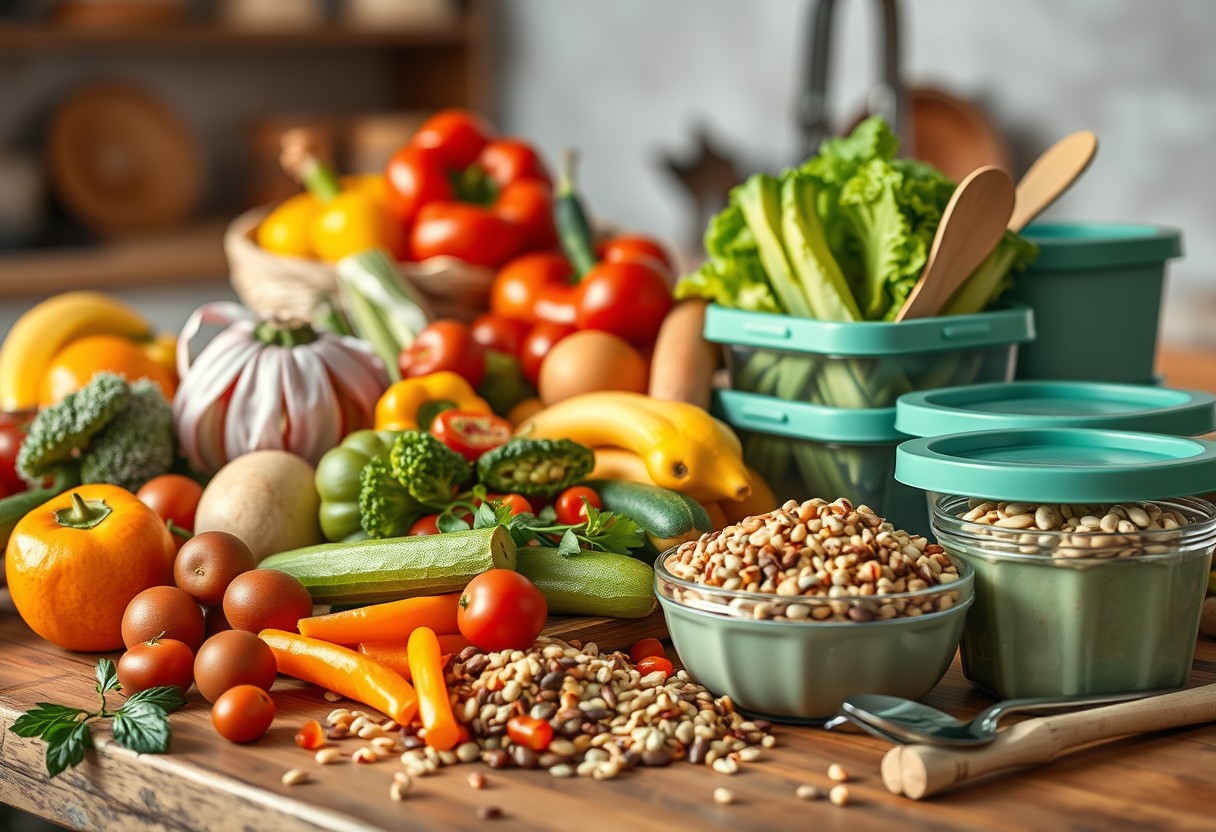Just think about how composting can transform your approach to food sustainability. By turning organic waste into nutrient-rich compost, you can enrich your soil, reduce landfill contributions, and improve your food production methods. Not only does compost enhance plant growth, but it also minimizes the need for chemical fertilizers, creating a healthier environment. If you’re curious about how compost contributes to sustainable food practices, check out this insightful article on How does compost contribute to the sustainability of food …. Together, we can make a positive impact on our planet.
Understanding Composting
Before you explore sustainable food practices, it’s vital to understand composting. This process transforms organic waste into nutrient-rich soil amendments, promoting a circular economy for waste. By engaging in composting, you significantly reduce landfill waste while creating a resource that enhances soil health and productivity for your gardens or community spaces.
Definition and Process of Composting
About composting involves the natural decomposition of organic materials, such as food scraps and yard waste, into a dark, crumbly substance known as compost. The process begins by layering green materials (nitrogen-rich) and brown materials (carbon-rich), then allowing microorganisms to break them down over time. With optimal moisture and aeration, you can produce compost in a few months to a year.
Benefits of Composting for the Environment
Across many dimensions of environmental sustainability, composting plays a significant role. It reduces the amount of waste sent to landfills, lowers greenhouse gas emissions, conserves water, and enhances soil health. By adopting composting practices, you contribute to a healthier ecosystem and promote biodiversity, ensuring a sustainable future.
Also, composting enriches the soil with crucial nutrients, fostering healthier plant growth and reducing the need for chemical fertilizers. This practice not only helps in minimizing harmful runoff that can pollute water bodies but also supports various organisms in the soil ecosystem. By incorporating composting into your routine, you’re actively participating in sustainable food practices that benefit both the environment and your local community.
1. Reduces food waste and landfill impact significantly.
2. Enhances soil fertility and supports healthy plant growth.
3. Encourages local food production and sustainable agriculture practices.
4. Minimizes greenhouse gas emissions from decomposing waste.
5. Promotes biodiversity through enriched soil ecosystems.
6. Provides cost-effective solutions for urban and rural gardens.

Composting’s Role in Sustainable Food Practices
While many may overlook the power of composting, it serves as a transformative practice in sustainable food approaches. By converting organic waste into nutrient-rich compost, you can substantially lower greenhouse gas emissions and create a valuable resource that supports the growth of healthy plants. Composting not only minimizes landfill contributions but also contributes to a circular food system, emphasizing the importance of reusing resources.
Reducing Food Waste
Waste reduction is one of the most significant benefits of composting. By composting your food scraps and organic waste, you divert them from landfills, where they would otherwise contribute to harmful methane emissions. Instead, you create a valuable amendment for your garden, turning potential waste into a resource.
Enhancing Soil Health
About 30% of what you throw away can be composted. Contributing to compost enriches the soil, improves its structure, and increases its ability to retain moisture. By integrating compost into your gardening routine, you foster an environment where plants thrive, thus enhancing your food yield and overall biodiversity.
Food grown in enriched soil through composting not only tastes better but also is packed with nutrients important for your health. Compost helps balance pH levels, replenish soil nutrients, and promote beneficial microorganisms, which are all vital for a thriving ecosystem. By committing to composting, you actively enhance the quality of your soil while cultivating a sustainable future.
Community and Home Composting Initiatives
For individuals and neighborhoods, composting initiatives can transform waste management practices and foster a sense of community. Engaging in composting collectively not only promotes sustainability but also educates participants about the importance of reducing food waste and enriching the soil. By participating in these initiatives, you can contribute to a greener environment while building connections with others who share your commitment to sustainable food practices.
Community Composting Programs
Any community can benefit from composting programs designed to manage organic waste. These initiatives often involve shared compost bins located in public spaces, allowing residents to deposit their food scraps and yard waste. By participating, you can help reduce landfill contributions and provide nutrient-rich compost that can be returned to the community gardens, ultimately supporting local food production.
Home Composting Techniques
Any homeowner can effectively implement simple composting techniques at home, creating a sustainable solution for their kitchen waste. Through methods such as vermicomposting, hot composting, or using compost bins, you can transform scraps into nutrient-dense soil enhancers. This not only reduces waste but also supports your garden or houseplants, creating a closed-loop system that benefits your living environment.
Another effective home composting technique involves the use of a tumbling composter. This method allows you to mix ingredients efficiently, speeding up the composting process and reducing odors. It’s an excellent option if you have limited space. By consistently adding a mix of green (nitrogen-rich) and brown (carbon-rich) materials and turning the tumbler regularly, you can produce high-quality compost in as little as a few weeks, making it a rewarding and environmentally friendly practice for your household.
Challenges and Misconceptions of Composting
Once again, composting faces various challenges, often stemming from misconceptions that can deter individuals from adopting this sustainable practice. Many perceive composting as a tedious or complicated process, which creates barriers for those looking to reduce food waste. Understanding these challenges is necessary for you to embrace composting as a viable solution for sustainable food practices.
Common Barriers to Composting
Common barriers to composting include lack of space, time constraints, and uncertainty about how to begin. Many people think they need a large backyard to compost effectively, while actually, you can successfully compost in small spaces with the right techniques. Additionally, some individuals may believe that composting requires extensive time and effort, which can discourage them from even trying.
Debunking Myths About Composting
Between the misconceptions surrounding composting, you might think it’s smelly, attracts pests, or that you need a PhD in gardening to get started. However, many of these beliefs lack foundation and can mislead you away from composting.
Another common myth is that composting will attract pests; in reality, proper maintenance and the right materials can keep unwanted critters at bay. You may also think composting is too complicated, but it can be as simple as tossing food scraps into the right container. By debunking these myths, you can feel more confident in your ability to compost successfully and enjoy its many benefits.
Integrating Composting into Food Systems
Unlike traditional waste disposal methods, composting can significantly enhance food systems by recycling organic matter back into the soil. By integrating composting practices, you facilitate nutrient-rich soil, which boosts crop yields and reduces dependency on chemical fertilizers. Furthermore, how composting can reduce our impact on the planet becomes evident as it minimizes food waste and greenhouse gas emissions, promoting a more sustainable and eco-friendly agricultural approach.
Policy and Educational Initiatives
On a broader scale, effective policy and educational initiatives are necessary for promoting composting practices within communities. These measures can help you understand the benefits of composting, facilitate infrastructure development, and provide resources to encourage participation. By engaging with local authorities and educational institutions, you create a supportive environment for sustainable practices.
Collaboration Between Farmers and Communities
Before you start composting, it’s important to foster collaboration between farmers and your local community. This partnership can bolster knowledge sharing and facilitate the establishment of community composting programs, enhancing local food security and sustainability efforts.
Consequently, when farmers and communities work together, they create a network that supports sustainable agricultural practices. You can benefit from educational workshops, share composting resources, and exchange organic waste, which helps minimize food waste at both the production and consumption levels. This collaboration not only improves soil health and increases crop productivity but also fosters a strong sense of community, reinforcing the importance of sustainability in food systems.

The Future of Composting in Sustainability
Many experts believe that composting will play a pivotal role in sustainable food practices as awareness and demand for eco-friendly solutions grow. As individuals and communities adopt composting, the potential to significantly reduce food waste and enhance soil health becomes increasingly tangible. By integrating composting into daily life and policy, you contribute to a more sustainable future, fostering a healthier planet for generations to come.
Innovations in Composting Technology
Among the exciting advancements in composting technology are aerated bins and in-vessel composters, which streamline the composting process and accelerate decomposition. These innovations make it easier for you to compost at home or on a larger scale, while maximizing the efficiency of organic waste management. Additionally, apps and smart sensors are emerging to assist you in monitoring progress, ensuring optimal conditions for successful composting.
The Role of Composting in Circular Economies
Role of composting in circular economies is imperative as it directly links food production, consumption, and waste management. By recycling organic waste into nutrient-rich compost, you close the loop in food systems, thereby minimizing waste and maximizing resources. Composting not only enriches soil but also promotes sustainable agricultural practices, ultimately reducing the reliance on chemical fertilizers and fostering a healthy ecosystem.
Consequently, as you engage in composting, you become an integral part of the circular economy. This practice allows you to transform organic waste into a valuable resource, promoting regenerative agricultural practices and enhancing food security. By embracing composting, you actively contribute to reducing greenhouse gas emissions and improving soil health. Furthermore, this encourages local economies and creates a sustainable system that benefits both producers and consumers. Your actions in composting pave the way for a greener, more sustainable future.
To wrap up
From above, you can see how composting serves as a vital solution for sustainable food practices. By converting organic waste into nutrient-rich compost, you contribute to reducing landfill waste while enriching your soil, enhancing plant health, and promoting biodiversity. Incorporating composting into your routine not only helps you minimize your environmental footprint but also supports sustainable agriculture and increases your garden’s productivity. By embracing composting, you actively participate in a more sustainable food system that benefits both you and the planet.



